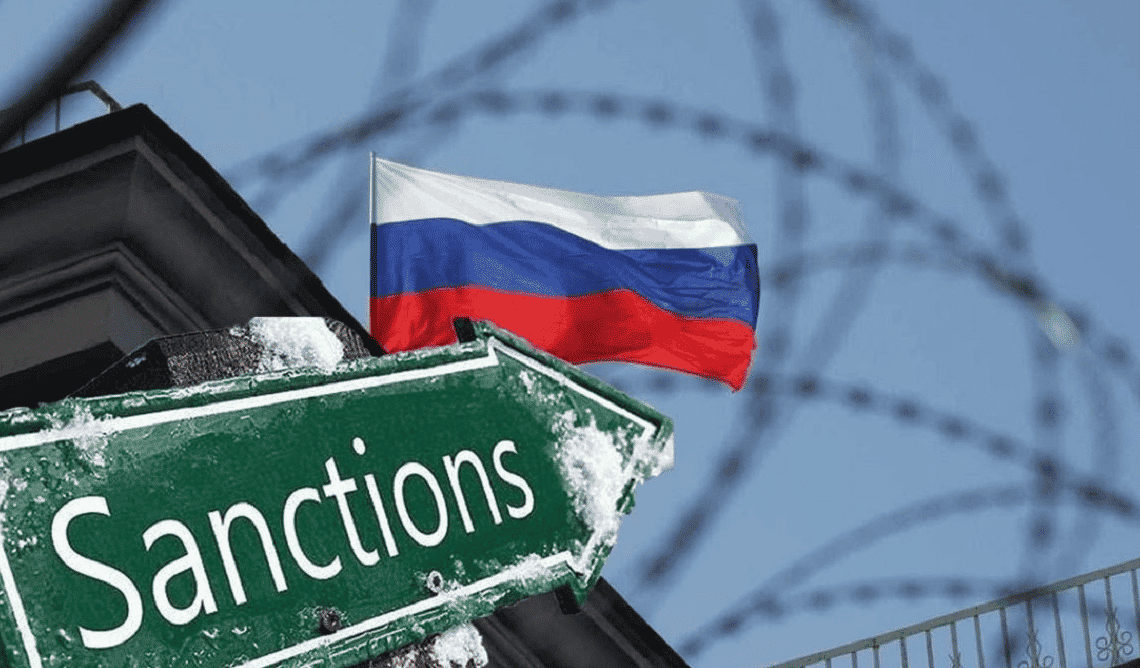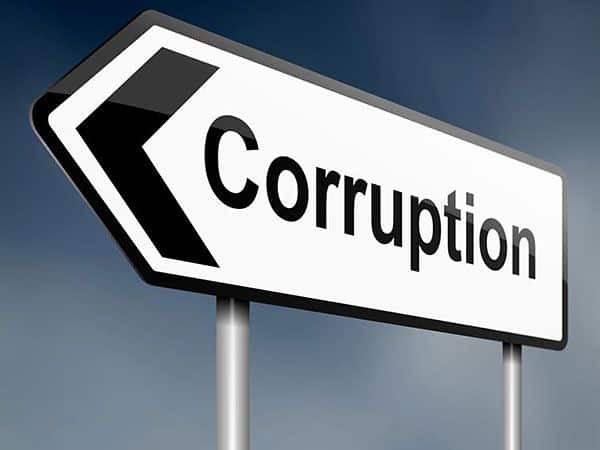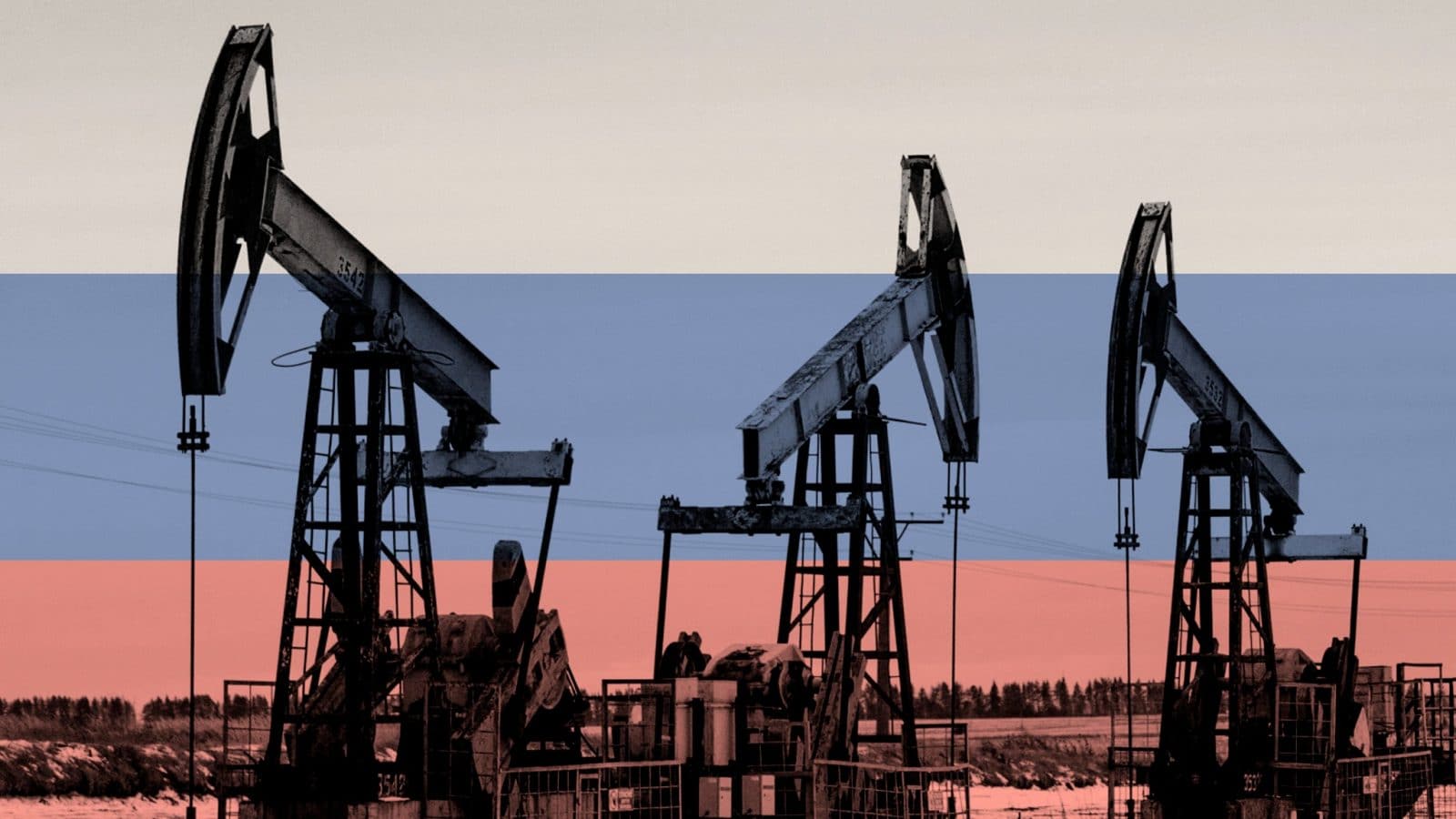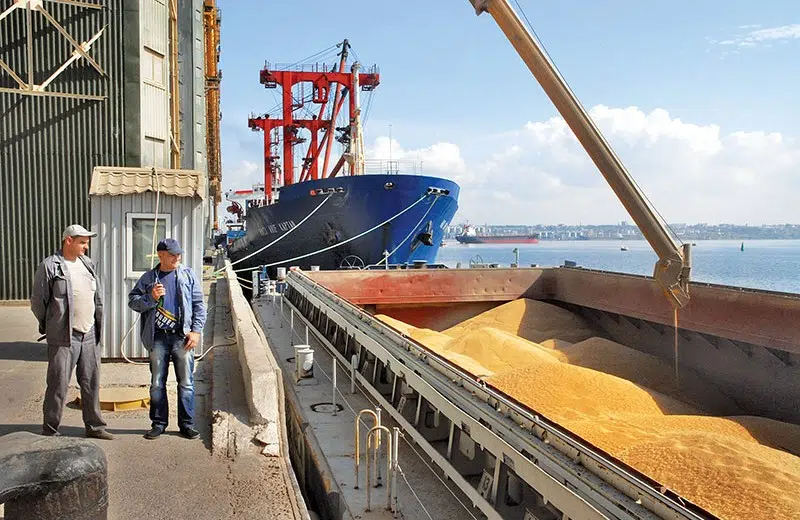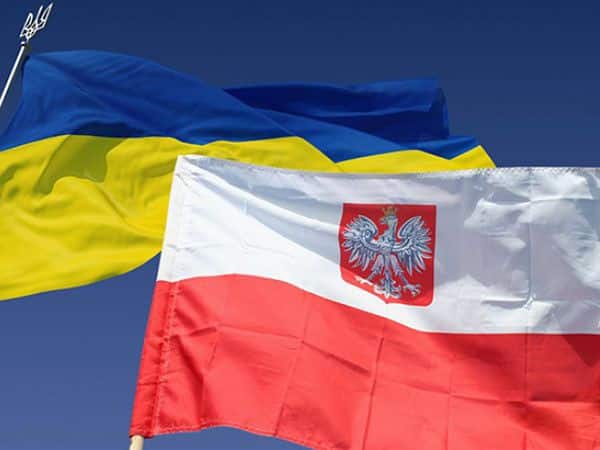Alfried Krupp was a German industrial businessman and one of Adolf Hitler’s main supporters. His company, Friedrich Krupp AG, produced weapons for the Wehrmacht, utilized prisoners for forced labor, and seized factories across Europe.
In 1948, Krupp was sentenced to 12 years of imprisonment by a military tribunal, but he never served his punishment. Just three years later, the businessman was released. Eventually, his assets and control over the conglomerate were returned to him.
It seems that this history hasn’t taught anyone anything. Everything is heading towards the same scenario where Russian officials and oligarchs who support Putin will also evade responsibility after the war.
Western countries have frozen yachts and villas belonging to the Russian elite worth billions of dollars, but what to do with them remains unknown. The next step should have been the confiscation of money for the benefit of Ukraine but the allies are not daring enough to take that step.
Wait out the war
The Russian elite has a weak spot: its love for luxury. For decades, corrupt money from Russia has been settling in Western countries, where it has been transformed into houses, apartments, yachts, restaurants, and golf clubs.
When Putin unleashed the full-scale war, sanctions were imposed against the owners of this property — Russian oligarchs, politicians, and propagandists. Thousands of Russians can no longer enjoy vacations on yachts or sell their apartments or securities.
Overall, Ukraine’s allies have frozen private Russian assets worth $58 billion. The logic behind such actions is simple: the more property Putin’s regime loses, the sooner its representatives will compel the government to stop the war.
In the early months of the full-scale war, there were high hopes for a revolt among the Russian elite. However, they proved futile as the war became a profitable business for them. Russian officials and oligarchs successfully compensated for their losses.
The war caused a surge in global prices for grain, fertilizers, metals, and energy resources, enriching Russian companies. For example, the wealthiest individual in Russia, the owner of corporations EuroChem and Siberian Coal Energy Company (SUEK), Andrey Melnichenko, doubled his wealth in 2022, increasing it from $11 billion to $25 billion, setting a new record for him.
Oligarch Arkady Rotenberg, close to Putin became $500 million richer, and the wealth of one of the ideologists of the invasion, oligarch Yury Kovalchuk, whose company insures the lives of Russian military personnel, nearly returned to pre-war levels.
Vladimir Potanin, whose key asset is the metallurgical giant Norilsk Nickel, increased his profits by one-third, reaching $24 billion.
Due to the war, several Western corporations have exited the Russian market, which became a real gift for local businessmen. Increasingly, owners of companies that have profited from this are appearing on the Russian Forbes list.
Furthermore, Russian oligarchs have appropriated certain Western assets. Potanin acquired Rosbank, previously owned by the French, while Tyryshkin obtained Czech Home Credit. Novatek, owned by billionaires Leonid Mikhelson and Gennady Timchenko, is purchasing shares in Western companies Shell and Total for major Russian projects in oil and gas extraction.
After a decline in 2022, the value of assets held by Russian billionaires increased from $353 billion to $505 billion.
While Russian businessmen and officials lined their pockets, their military killed Ukrainians and destroyed infrastructure. According to estimates by the Ukrainian government, Russia caused $700 billion in damages to Ukraine.
Neither sanctions nor war crimes have compelled the Russian leadership to abandon its support for the Kremlin’s course. The question arises of what to do with their frozen assets. Yachts, villas, corporate rights worth billions of dollars still remain in their possession. The only thing they face is a slight loss in value due to inactivity.
As asset freezing yields no results, the West should move to the next step: confiscation and transfer of these assets to Ukraine. The idea of using $58 billion of Russian private assets to compensate for the inflicted damage seems entirely fair, but Western countries are not rushing to do so.
Sanctions have been frequently imposed in recent decades, but confiscation on such a scale has never been pursued. Just like during the trial of Krupp, G7 countries are afraid to violate the “sacred” right to property. However, if nothing is done, Russian oligarchs will be able to reclaim their money after the war.
“Sanctions are a response to the outbreak of war. If the war ceases, there are no grounds for sanctions. Restrictions on Russian oligarchs can be lifted through courts or government decisions,” explains Iryna Mudra, Deputy Minister of Justice.
“Many promise to pass laws on asset confiscation after the victory. However, confiscation may not occur after the victory because the law does not have retroactive effect. If these mechanisms are implemented after the war, there will be no grounds for confiscation anymore, as there will be no legal fact of ongoing armed aggression,” said Yaroslav Sydorovych, co-founder of the NGO Network for the Protection of National Interests (ANTS).
The risk of letting the aggressor go unpunished forces Western countries to take the first steps towards confiscating the money. The process has proven to be more challenging than Ukrainians anticipated.
Why Russian money is not being confiscated
In Ukraine, assets of those involved in the Russian aggression are seized through the mechanism of civil confiscation. The recovery of each asset requires a substantial evidentiary basis, as each case is individually considered in court. However, thanks to an expedited procedure, Ukraine can obtain a decision within ten days after filing.
“Ukraine has 24 decisions from the Anti-Corruption Court regarding the confiscation of Russian assets worth 80 billion UAH (2,1 million USD). Our law could serve as an example for Western partner countries,” noted Lydia Lisovska, a professor of economics.
However, the West is not in a hurry to develop such rules. Ukrainian officials involved in international negotiations acknowledge that allies are not ready to implement fast-track confiscation mechanisms. They are seeking compromise options.
The European Union is willing to confiscate Russian assets in favor of Ukraine, but not under civil provisions. Instead, it would be done under criminal charges after lengthy court proceedings. However, oligarchs will be prosecuted not for sponsoring terrorism or committing crimes against humanity but for violating the sanctions regime.
What does this mean? Under the new regulations, sanctioned oligarchs will be required to declare their assets, which will then be frozen. If the police discover that an individual has not declared a property or has rented it out during the sanctions period, such assets may be confiscated.
However, it may not be possible to seize a significant amount of Russian money through this method. If a Russian oligarch intends to ride out the war, he simply needs to declare his assets and do nothing. In that case, the court will have no grounds for confiscation, and sanctions will be lifted after the war.
Of course, there will be adventurous businessmen who attempt to violate the law. This was the case in Germany when oligarch Alisher Usmanov failed to declare paintings worth $5 million on his yacht, resulting in their confiscation. A similar fate befell a Russian deputy who tried to rent out apartments in Munich.
In the United States, oligarch Konstantin Malofeev had $5.4 million confiscated for violating sanctions when he attempted to use blocked funds. Currently, Americans are considering the means to direct these funds to Ukraine.
The examples mentioned are insignificant compared to the frozen amounts in these countries. Only a few billion dollars’ worth of super-yachts have been detained. However, Western partners rarely manage to find grounds for confiscating truly valuable assets.
Out of the six largest detained Russian yachts, only one has been confiscated. One of the favorite “harbors” of Russian oligarchs was the United Kingdom. Its capital was even jokingly referred to as “Londongrad” due to the influx of Russian businessmen. The local authorities froze Russian assets there amounting to $23 billion. However, when it comes to confiscation, the British are even more cautious than the EU and the US.
“The UK is currently not planning to carry out confiscations because it has a precedent law. Britain does not want to set a precedent that would later require the courts to do the same with frozen assets of other countries,” says Vladyslav Vlasiuk, an advisor to the President’s Office.
On the other hand, Britain does not intend to lift sanctions after the war. According to Vlasiuk, there is a consensus that the assets will only be unfrozen after Russia compensates Ukraine for its losses. However, this scheme has a downside. If Russia does not pay reparations, the oligarchs’ money will simply remain stuck in Britain for many years and will not contribute to the reconstruction of Bakhmut or Mariupol.
There are positive examples when it comes to confiscation. In Canada, a mechanism of civil confiscation has been developed, which allows for the seizure of Russian private assets based on imposed sanctions rather than criminal offenses. Currently, Canada is the only country that has taken such a step, influenced by a significant Ukrainian diaspora presence.
The Canadian government is doing everything possible to secure a $26 million judgment in favor of Ukraine against the oligarch Roman Abramovich. However, there are not many private Russian assets in Canada.
In 2022, an attempt was made in the United States to pass a law similar to the Canadian one, but it did not receive support. As a result, Americans also decided to proceed cautiously: confiscating assets solely for sanctions violations and money laundering.
See also: Britain has found a way to return confiscated funds of Russian oligarchs to Ukraine
Under this scheme, the United States has confiscated Russian assets worth $500 million, primarily through trials involving oligarchs Suleyman Kerimov and Viktor Vekselberg. This amount is significantly higher than that of other allies, but these funds have not yet been transferred to Ukraine.
Although the process has stalled, at best we are talking about hundreds of millions of dollars for Ukraine instead of tens of billions. The path to obtaining significant sums for reconstruction promises to be long, but time is running out.
Money is needed now
Sooner or later, the war will end, sanctions on Russians will be lifted, but no one will compensate for the losses if the West does not confiscate Russian private assets by that time. Even if Russian money remains blocked in the West after the war, it will not benefit Ukraine. The reconstruction of devastated cities needs to start now, and Russian source of funding has not been found in the past one and a half years.
“Critical infrastructure cannot wait for the end of the war. Russian money is needed now. We have situations like the undermining of the Kakhovka Hydroelectric Power Plant, where reconstruction projects need to start immediately. In the compensation mechanism fund we are creating, the first assets will need to be transferred soon,” said Iryna Mudra.
While the governments of Western countries seek compromise solutions, lawyers for Russian oligarchs exploit this as a weakness and defend their assets in court.
Usmanov was able to have search warrants for his homes and yacht overturned in court, and the mother of Russian terrorist Yevgeny Prigozhin succeeded in having sanctions against herself lifted through legal means. This could set a precedent for the lifting of sanctions on other relatives of Russian leaders, to whom they often transfer assets.
Some Russian oligarchs completely evade personal restrictions. For example, one of Russia’s wealthiest individuals, Vladimir Lisin, is still not under sanctions, despite his company supplying steel to the Russian military industry.
“Since 2014, approximately 10,000 Russians have been placed under sanctions. However, only 500 of them are concurrently under sanctions in all of Ukraine’s allied countries. The lack of synchronization of sanctions lists diminishes their effectiveness. The CEO of Rosatom, Alexey Likhachev, who was involved in the seizure of the Zaporizhzhia Nuclear Power Plant, is still not under EU sanctions. Australia imposed sanctions against him in April 2022, but EU countries have been dragging their feet for sixteen months,” noted Oksana Yurynets, a professor of economics.
Frozen Russian funds in Western countries are the only means to hold the aggressor accountable for the destruction of Ukraine. However, the foundation for new cities for Ukrainian refugees will only be laid when the world starts taking tougher action against Russian money. Ukrainian soldiers are already paying the price with their lives while searching for such mechanisms. Now it is up to our Western allies to act.
Originally posted by Bohdan Miroshnychenko on Economichna Pravda, translated and edited by the UaPosition – Ukrainian news and analytics website
See also: Instead of confiscation: why is the EU looking for a new mechanism for frozen Russian assets?

